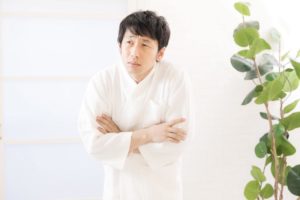“tsuneni” vs. “itsumo”:Learn To Speak Japanese Powerfully
What is the difference between “常に(tsuneni) and いつも(itsumo)”? They have subtle differences. If you have some reason, which is correct: “私は常にバスで学校に行く” or “私はいつもにバスで学校に行く”? After reading this, you would be answering this question. Let me introduce what their subtle differences are and how you correctly use them such as native speakers today!
常に (tsuneni)
Always / 平时 / 항상 / thường thì
“常に(tsuneni)” means “Always” and which has been used as the meaning of “every time or all the time”. The basic way to it is “常に___(verb)する/(adjective)だ” such as “常に笑う(always laugh)”, 常賑やかだ(always lively)”, etc. Native speakers tend to use いつも as the meaning of “常に”. Because “常に” is pretty formal in daily conversation.
\ Learn Japanese with a personal native teacher!/
Sample
私の家族は常に賑やかなの!草 (My family is always lively.) (我家总是很热闹!草) (우리 가족은 엄청 밝아 ㅋㅋ) (Gia đình tớ thường rất náo nhiệt!) (watashi no kazoku wa tsuneni nigiyaka nano! kusa)


常に謙虚でいたいな。 (I always want to be humble.) (我想一直保有谦虚。) (항상 겸손하고 싶다.) (Tớ muốn lúc nào mình cũng khiêm tốn.) (tsuneni kenkyo de itai na.


うーん。健康かぁ・・・ (Hmm…health…) (唔~~健康吧?!) (음.. 건강한 걸까..) (Hửm… gì cơ? khỏe mạnh á…) (u-n. kenkō kā-…)


体を常に暖かくすることだよ! (Always keep yourself warm!) (始终保持身体温暖哦!) (몸을 항상 따뜻하게하는 것이 좋아!) (Lúc nào cũng phải giữ ấm cơ thể đấy!) (karada wo tsuneni atatakaku suru koto dayo!)
いつも (itsumo)
Usually (Always) / 总是 / 언제나 / lúc nào cũng
“いつも(itsumo)” means “Usually (Always)” and which has been used as the meaning of “in the way that most often happens”. The basic way to use “いつも” is “私はいつも___(verb)する/(adjective)だ” which means “I usually ___(verb)/ am usually ___(adjective)”. Again native speakers tend to use “いつも” as the meaning of “常に”. So, the meaning of “I always go by bike.” and “I usually go by bike.” can be translated to “私はいつも自転車で行く”. Of course, you could say “私は常に自転車で行く” as the meaning of “I always go by bike.” when you want to emphasize “Always”. Using “いつも” is casual than using “常に”.
Sample


いつも遅れてくるじゃん! (You are always late!) (你怎么总是迟到啊!) (언제나 늦게 오잖아!) (Cậu lúc nào cũng đi trễ vậy!) (itsumo okurete kuru jan!)


いつもありがとう! (Thank you for always!) (一直以来谢谢你!) (항상 고마워!) (Cám ơn cậu vì luôn giúp đỡ tớ!) (itsumo arigatō!)


いつものことだけどね!草 (Like I always do! hehe) (虽然很平常!草) (항상 있는 일이지만! ㅋㅋ) (Lần này cũng như mọi lần ý nhỉ!) (itsumo no koto dakedo ne! kusa)


毎週日曜日はいつもカフェに行くよ。 (On Sundays, I usually go to the cafe.) (我每个星期天都会去咖啡馆。) (매주 일요일은 카페에 가.) (Chủ nhật nào tớ cũng đi uống cà phê.) (maishū nichiyōbi wa itsumo kafe ni iku yo.)
\ Learn more! /









Comments